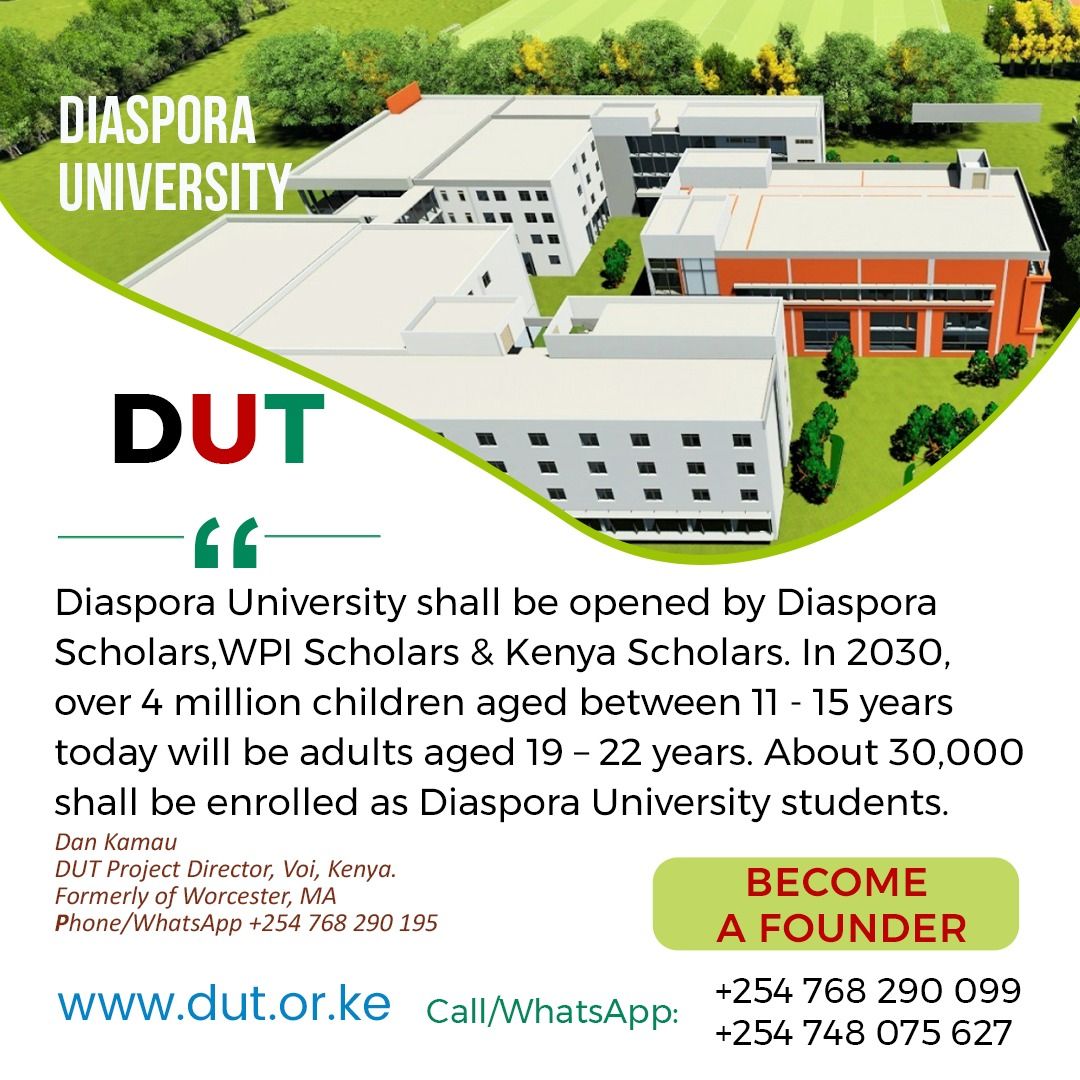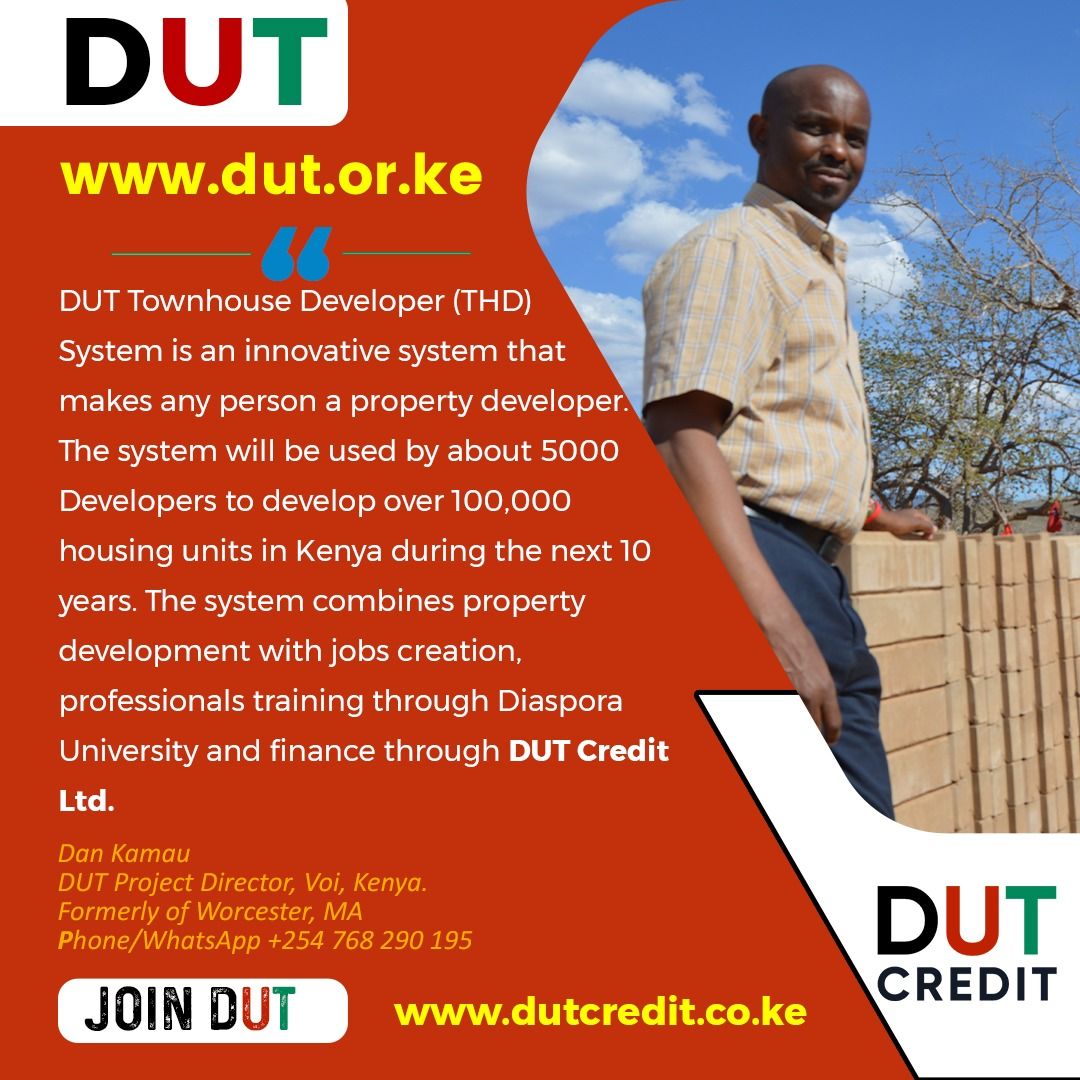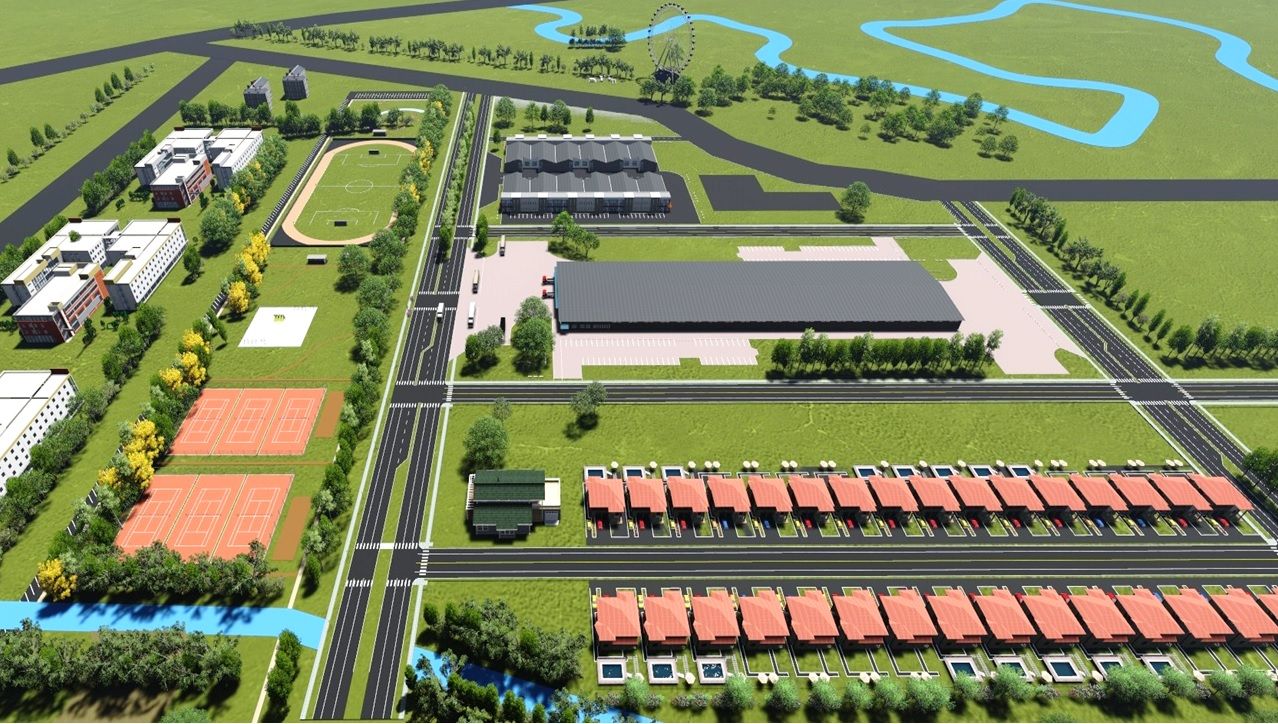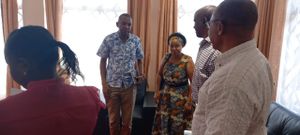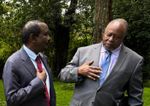Kenya continues to have low jobs creation rates. This low rate of jobs creation leads to Kenyans looking for jobs in other countries that have created more jobs than the demanded jobs by the population entering the jobs market. The Kenya Diaspora community is a result of low jobs creation in Kenya and excess jobs creation in the developed countries.
The Jobs that the Diaspora today enjoy trace their origin to the great depression of 1929. The generation then would look for solutions as they looked to come out of the depression. In the 1930’s and early 1940’s they progressively adopted a new approach of applying resources of production to sustain themselves and future generations. The systems and plans started have since sustained the world population that has grown from 2 billion to the current 8 billion persons.
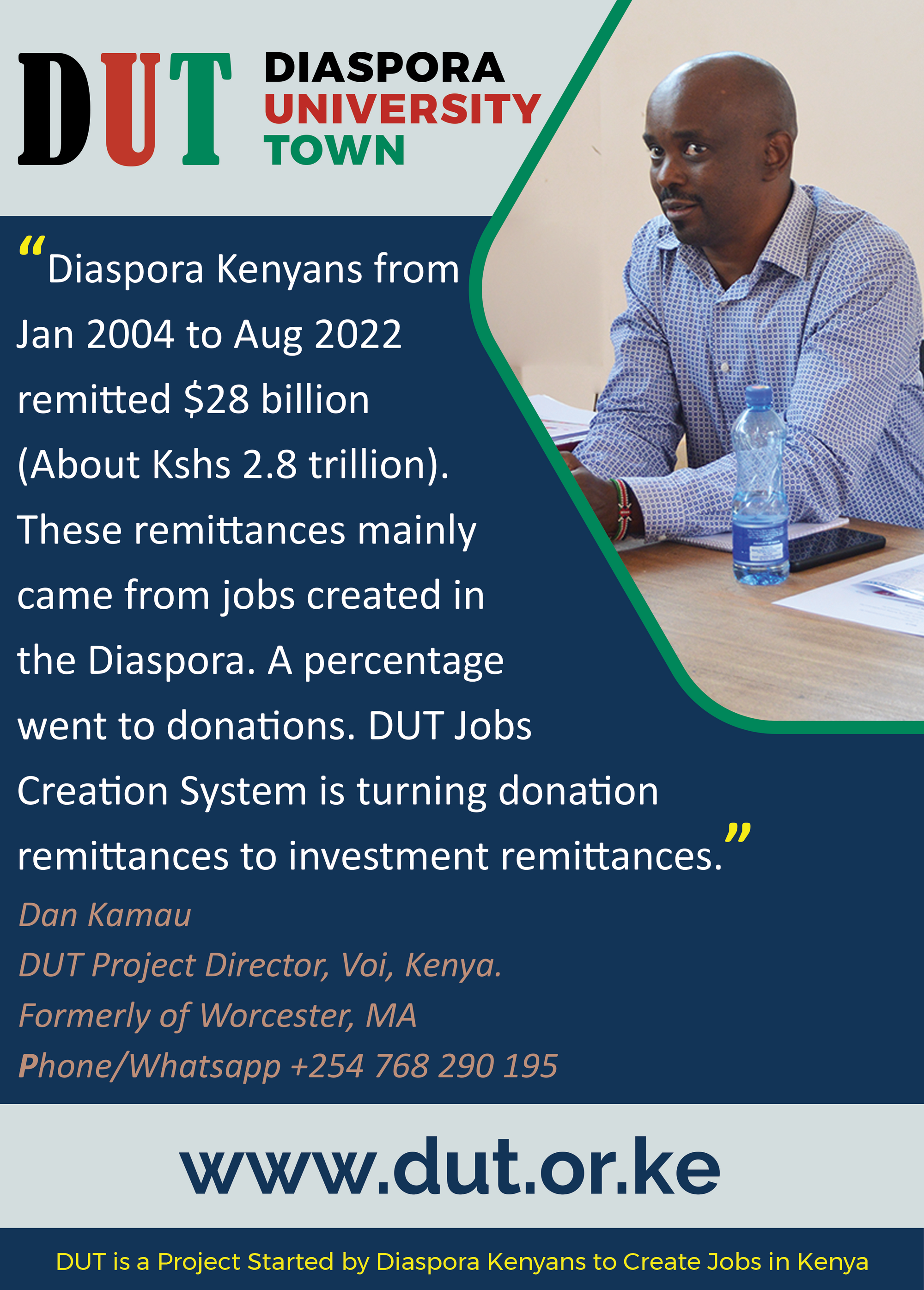
The new approach looked at the resources of production that can be summarized into three: land, human and money.
Land resource is defined in Kenya Constitution as the surface of the earth and the subsurface rock; any body of water on or under the surface; marine waters in the territorial sea and exclusive economic zone; natural resources completely contained on or under the surface; and the air space above the surface.
Human resource is the physical and intellectual resource that persons have as endowed and progressed through education. This resource is applied in the production of goods from the land. The human resource is established by adults between the ages of 18 years and 65 years. The resource is further established through the time input per person that is calculated at 2000 hours per person per year. The Kenya human resource in 2022 from about 25 million adults is 50 billion hours a year.
Money resource incorporates the printed notes and coins in circulation at a given day. Money further incorporates the deposits in the banking sector that are applied toward loan advances and government securities. In 2021 Kenya money system was about Ksh 600 billion printed and supplied money. Deposits of Kshs 4.2 billion were applied toward loan advances and government securities.
The formula of job creation is in the progressive plans and systems that the human resource creates to sustain the humans individually, collectively, and the environment. The developed world creates jobs through their citizens developing plans and systems that make the three resources productive.
The plans and systems are reflected in the growth of the gross domestic product (GDP). For example the U.S GDP that dropped to $58 billion in 1933 after the great depression has gradually grown to reach $21 trillion based on application of plans and systems that generate GDP growth.
Today Diaspora University Town (DUT) is being progressed by GDP growth plans and systems of jobs creation. The project desire is to apply the Kenya resources of land, human and money productively to meet the needs of Kenyans as well as create wealth for Kenyans.
Dan Kamau is the Executive Trustee/Project Director of the Diaspora University Town Project in Voi, Kenya.
